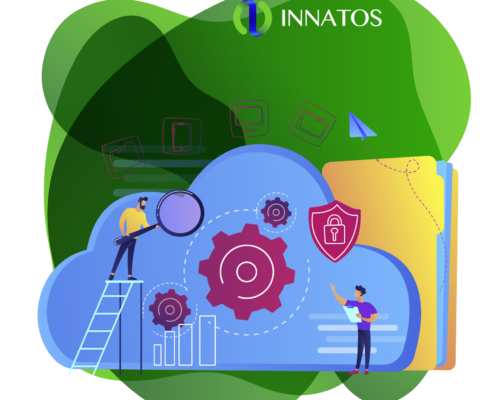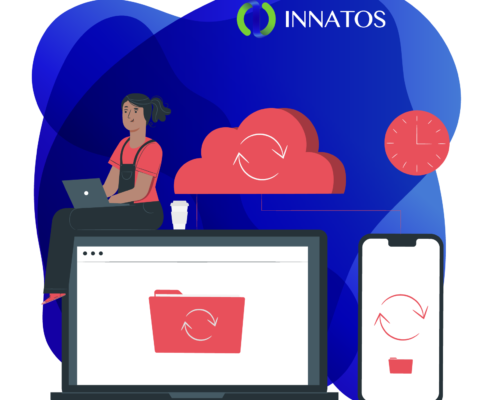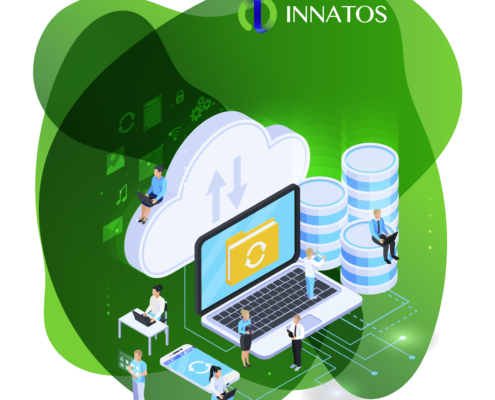Taking my ERP to the cloud?
Taking my ERP to the cloud? No matter what your line of business is, your company needs an ERP solution to automate your business processes.
An enterprise resource planning system, or ERP, is necessary for companies because there are several advantages it brings to our businesses. In addition, it has many benefits that we can provide to our customers. But not all ERP software that we find can handle the same features.
Some companies have a software within the commerce only and that is supported within the company. On the other hand, others have an ERP that is supported through Internet technology. This type of software is usually used when it comes to companies that have different branches in different areas of the country or even the world.
When an ERP is managed through the Internet, the information that is held in it must be stored in a safe, competent and functional way. That is why the cloud is used to carry out this need.
What is the cloud and what is it used for in an ERP?
 Taking my ERP to the cloud. Without complicating our existence too much, we will say in a simple way that the cloud is the place where we handle the Internet information, that which is not being used, that which is stored, where it resides.
Taking my ERP to the cloud. Without complicating our existence too much, we will say in a simple way that the cloud is the place where we handle the Internet information, that which is not being used, that which is stored, where it resides.
So let’s say we keep track of inventory and we have it outside the cloud, we would not have immediate access to the information of the products we have this year, we use, we sell and other issues. Whereas in the cloud we can have the inventory of past years and current inventory in a storage where that information is there, whether we use it or not at the moment, which we can access from anywhere in the world.
A good ERP solution fully integrates all business activities adding value to every functional area, from accounting to sales and customer service, through purchasing and supply chain and including manufacturing, engineering and warehouse control where applicable. The ERP selection process should focus on validating that it supports your company’s way of doing business and includes best practices for solving your business requirements, not just accounting/financial functions.
Deciding whether the ERP should be hosted on-premise or in the cloud does not have to be a complicated process, but the pros and cons of each option should be considered, as the same alternative cannot be recommended for all companies.
The economic model of today’s world is moving from a “buy everything” to a “subscription” scenario. For example, people who used to buy their CDs now subscribe to Spotify or Pandora to listen to the music of their choice. There are also others who used to buy their movies on DVD and now prefer to watch them whenever they want using a service like Netflix. And more recently, instead of buying a car, people in some countries around the world use Uber services to get from one point to another.
The same applies to companies that do not want to purchase the infrastructure and licensing required by an ERP and prefer to pay for the use of resources that allow them to operate on a monthly cost basis.
Companies began to use the concept of cloud applications by contracting the service for non-business-critical activities such as the help desk for user support, e-mail and CRM (Customer Relationship Management) used by the sales force. This model is known as SaaS (Software as a Service) or software as a service. More and more applications are available in the cloud and more and more companies are moving to this option, including those using an ERP under the SaaS model.
A cloud ERP requires little maintenance, since the provider is in charge of updating the versions and making the resource available when the user requires it, but the efficiency of this solution depends on the speed of the Internet connection and the reliability of the provider used. On the other hand, an ERP hosted at the company’s facilities requires specialized human resources to update versions and to fine-tune the resources to provide the response time required by the business.
When evaluating whether to have your ERP hosted in the cloud or on-premise, there are several factors to keep in mind. Do not forget that the best solution is the one that will allow the business to grow and that best meets the expectations of your company. Among the elements to consider, we can mention:
Does the functionality of the ERP to be hired guarantee the growth of the company?
 Taking my ERP to the cloud. What is the five-year total cost of ownership (TCO)?
Taking my ERP to the cloud. What is the five-year total cost of ownership (TCO)?
The investment for the cloud alternative represents a known monthly cost, but if it is not paid, the company is left without ERP.
What is the reputation and financial stability of the cloud service provider?
As the market consolidates, there will be cloud service providers that will surely disappear from the scene.
What is the cost of the human resources required to train users and configure their equipment?
Regardless of where the ERP is hosted, your company must have a team that provides support to the end user in the use and operation of the ERP modules.
What strategy will be followed to adopt ERP version upgrades?
 Taking my ERP to the cloud. The cloud service provider shares the same ERP version with all its customers, so it will always seek to have the latest version of the solution to offer all available functionality, but it is a fact that not all companies are the same. When ERP is hosted on-premise, an ERP version can be maintained for as long as it suits the company.
Taking my ERP to the cloud. The cloud service provider shares the same ERP version with all its customers, so it will always seek to have the latest version of the solution to offer all available functionality, but it is a fact that not all companies are the same. When ERP is hosted on-premise, an ERP version can be maintained for as long as it suits the company.
What will be the time and cost of migrating and matching information from the legacy system to the ERP whether it is hosted in the cloud or on-premise?
What kind of support will the cloud provider provide to perform the above process?
What is the cost of an alternate Internet connection? An alternate service should be available to be prepared in case of disaster.
- How will it be solved the fact that the company needs to have a backup of its information?
- Who will be responsible for ensuring that the company’s backed-up information is in a safe place and can be read whenever it is needed?
- What is the cost if it is not possible to access the ERP in the cloud?
- Emergent measures must be taken so that the company does not stop its operations and continues to do business.
- What is the cost of having the ERP on the company’s premises?
- The amount of the initial investment and the cost of keeping the solution running must be identified.
- What is the level of ERP customization required for the company to automate its business processes?
- If the level of customization is high, it deviates from standard ERP functionality. In this case, relying on an external supplier means a high risk.
The reality is that there is no one recipe for all companies. The needs of the business, its priorities and expected growth must be identified before making a decision on which model to adopt. There are advantages and disadvantages in both scenarios that should be considered before making a decision.
There are alternatives in our country and in the region for contracting cloud services that rely on local or international providers to host the ERP. Contact us!



Leave a Reply
Want to join the discussion?Feel free to contribute!